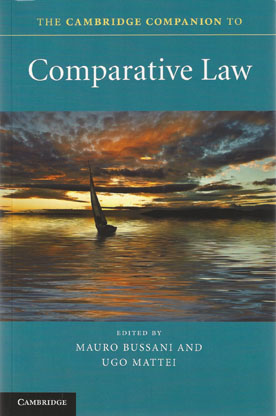We are now closed for the Christmas and New Year period, returning on Monday 5th January 2026. Orders placed during this time will be processed upon our return on 5th January.

We can only claim to understand another legal system when we know the context surrounding the positive law in which lawyers are trained. To avoid ethnocentricity and superficiality, we must go beyond judicial decisions, doctrinal writings and the black-letter law of codes and statutes and probe the 'deeper structures' where law meets cultural, political, socio-economic factors.
It is only when we acquire such awareness and knowledge of the critical factors affecting both the backgrounds and implications of rules that it becomes possible to control the present and possibly future developments of the world's legal institutions.
This collection of essays aims to provide the reader with a fundamental understanding of the dynamic relationship between the law and its cultural, political and socio-economic context.